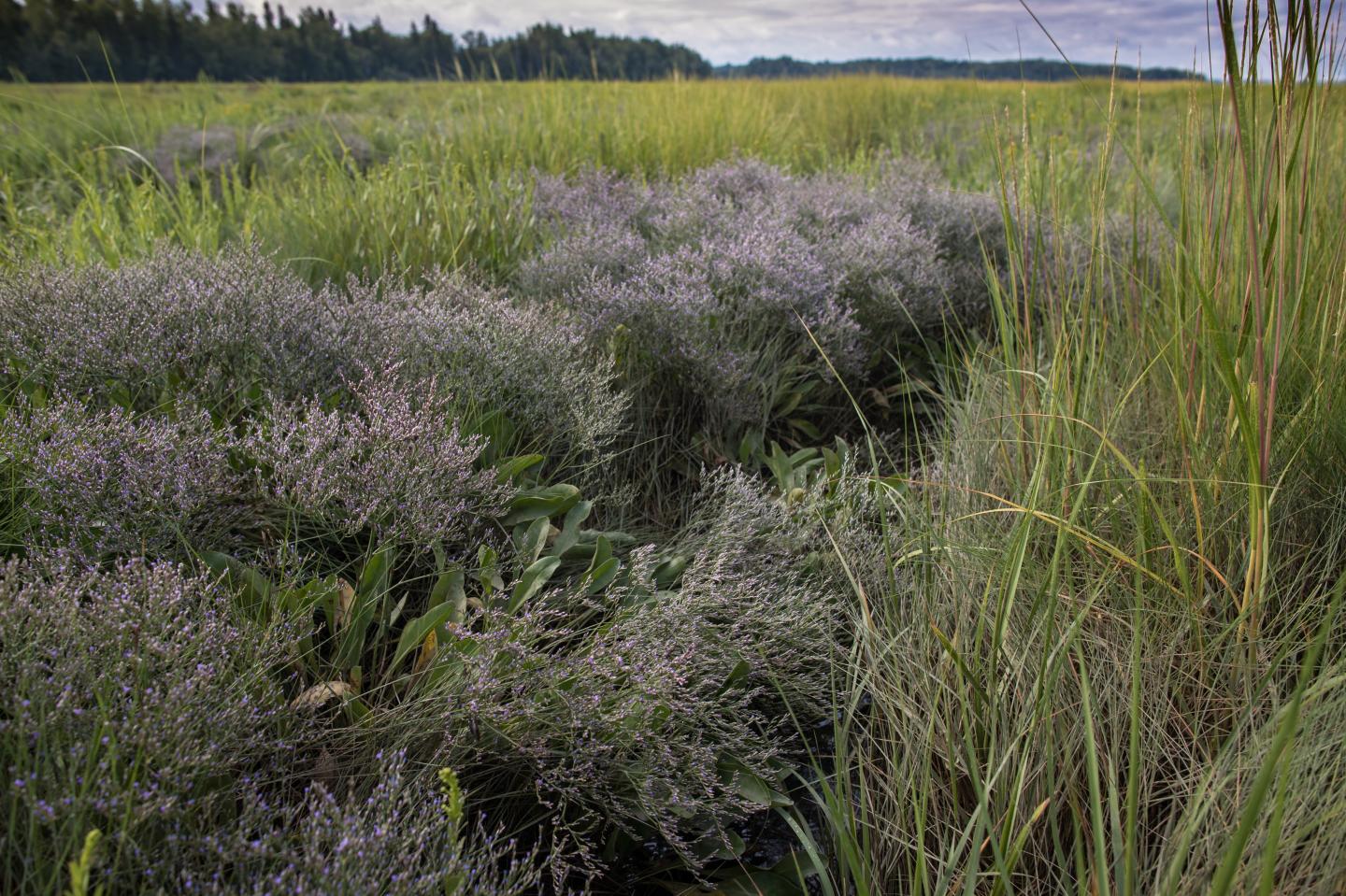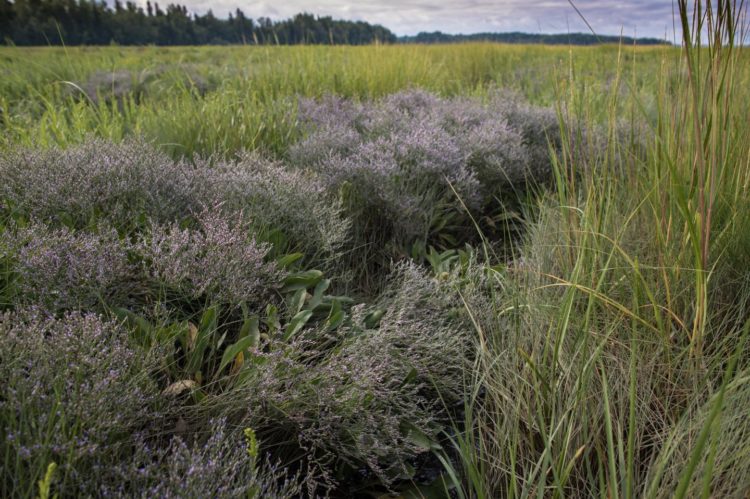Interactive story maps illustrate valuable contributions Maritime salt marshes make to our planet

Credit: Photo credit: O. Lucanus
Though they make up less than 6% of Earth’s surface, wetlands burst with biodiversity and play a key role in cleaning waterways, preventing floods, and sequestering carbon. For World Wetlands Day on February 2, researchers from McGill University are launching interactive story maps to illustrate the valuable contributions these ecosystems make to our planet.
Wetlands are uniquely defined by water-saturated soil subject to seasonal or permanent flooding. They support a disproportionately high number of endangered species, such as the Maritime Ringlet Butterfly. “The world’s entire population of the Ringlet is restricted to Chaleur Bay in northern New Brunswick and the southern coast of the Gaspé Peninsula in Québec. As a result, the future of this species is intimately linked to the future of the salt marshes there,” says Gail Chmura, an Associate Professor in the Department of Geography.
In addition to providing valuable habitat for wildlife, many wetlands naturally help combat climate change. Although all plant ecosystems transform carbon dioxide into plant tissue, dry soils favourable to fungi and microbes break down organic matter and return some of that carbon dioxide into the air. By contrast, salt marsh soils preserve organic matter and more effectively store carbon dioxide underground and have been doing this for millennia.
According to the researchers, saltwater marshes are some of the world’s most efficient reservoirs, continuously absorbing and holding atmospheric carbon. Soil from the Bay of Fundy salt marshes presently stores more than 52 million tonnes of carbon dioxide – equivalent to the average emissions of more than 11 million vehicles over a year.
All this underscores the importance of conserving, if not increasing, these natural reservoirs, they say. “Extensive historical losses of Canada’s salt marshes and the many services they provide to society makes what’s left a precious resource that requires our continued protection, and wherever possible the restoration of those lost wetlands,” says Chmura.
###
About the story maps
This project was undertaken with support from Environment and Climate Change Canada and the New Brunswick Wildlife Trust Fund. The story maps can be viewed here:
The Maritime Ringlet and Its Marshes – http://arcg.
Le Maritime Ringlet et ses Marais – http://arcg.
The Bay of Fundy of Blue Carbon Story – https:/
About McGill University
Founded in Montreal, Quebec, in 1821, McGill is a leading Canadian post-secondary institution. It has two campuses, 11 faculties, 13 professional schools, 300 programs of study and over 40,000 students, including more than 10,200 graduate students. McGill attracts students from over 150 countries around the world, its 12,800 international students making up 31% per cent of the student body. Over half of McGill students claim a first language other than English, including approximately 19% of our students who say French is their mother tongue.
Media Contact
Shirley Cardenas
[email protected]
514-398-6751
Original Source
https:/





